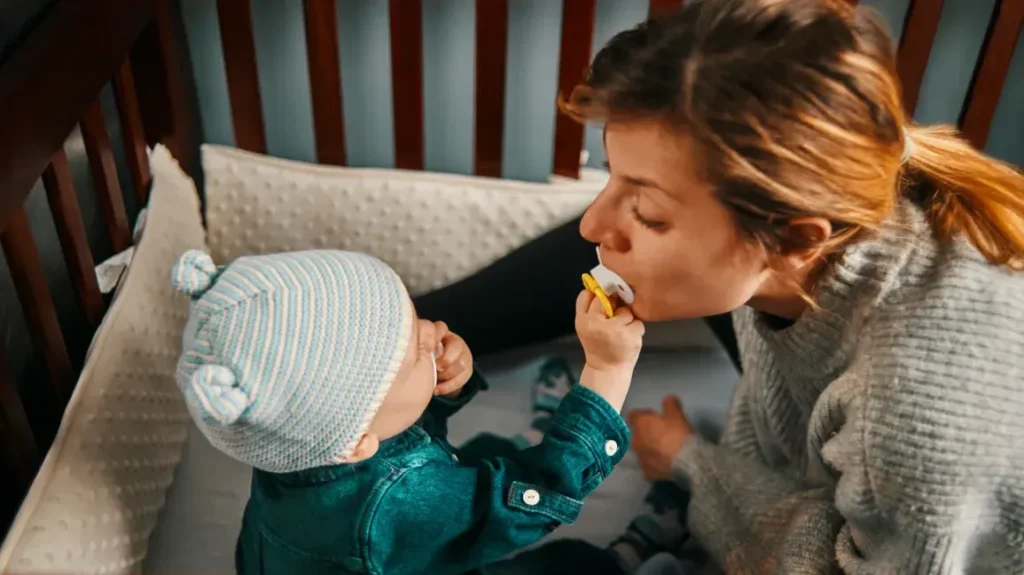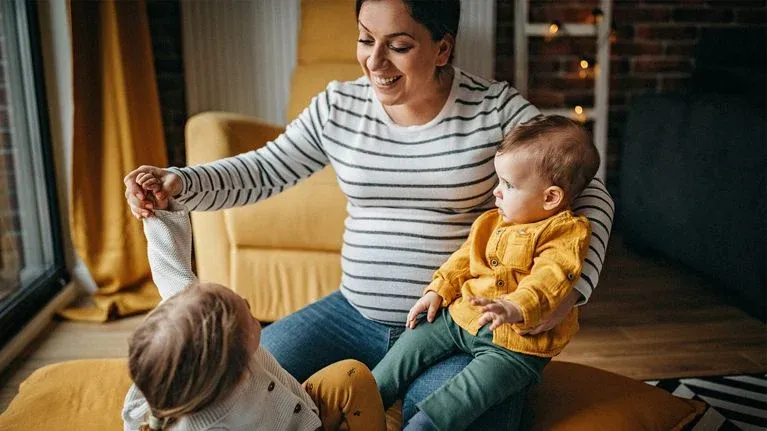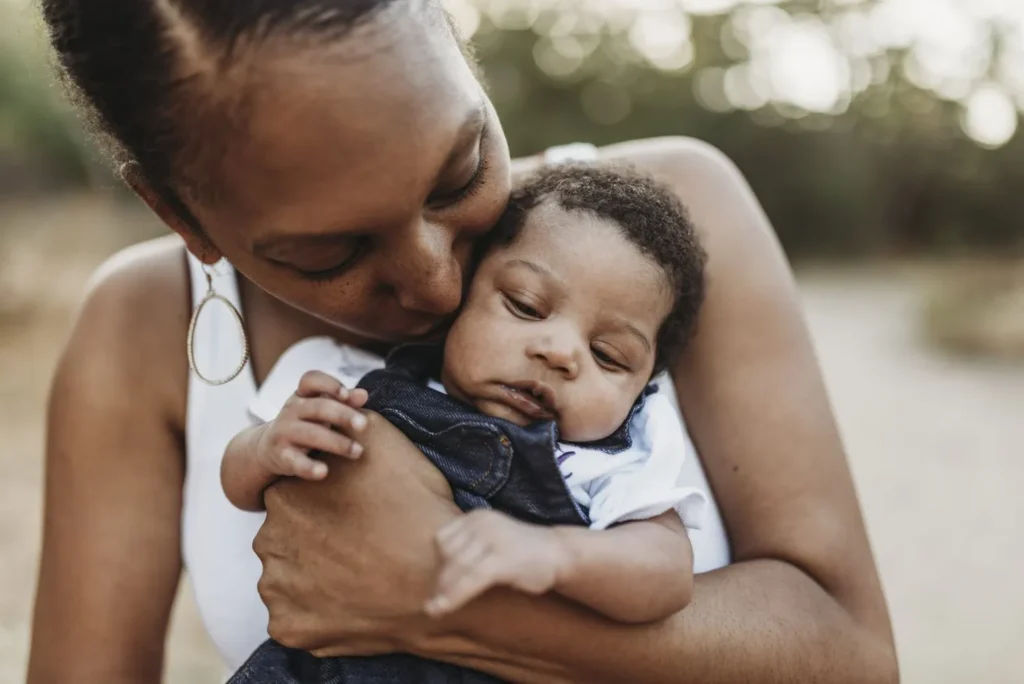Do you feel a disconnect with your baby mama and wonder if you can reignite her love for you? Are you curious to know if she has truly moved on from your relationship? Understanding the signs of emotional detachment and readiness to move forward is essential for co-parenting effectively and fostering a healthy environment for your child.

In co-parenting relationships, recognizing and respecting your baby mama’s emotional journey is paramount.
If you’re seeking to rekindle the flame or simply understand where she stands, here are some signs to look out for that may indicate she has moved on:
Signs Your Baby Mama Has Moved on

Here are potential signs that indicate your baby mama has moved on:
1. Introduction of a New Partner in Her Life
When your baby mama introduces a new partner into her life, it’s a clear indication that she has moved on from your past relationship.
This act signifies a willingness to explore new romantic connections and build a future beyond the confines of the previous partnership. By embracing a new relationship, she demonstrates her readiness to invest emotionally in someone else and move forward in her personal life journey.
It also suggests that she has processed the emotions associated with the breakup and is open to experiencing love and companionship in a different context.
However, it’s essential to approach this situation with respect and understanding, recognizing that her happiness and choices may no longer revolve around you.
2. Positive Changes in Your Baby Mama’s Emotional Well-being
Positive changes in your baby mama’s emotional well-being serve as compelling evidence of her journey towards moving on.
If she appears happier, more content, and at peace with herself, it indicates that she has found emotional stability post-breakup. This newfound sense of inner peace suggests that she has processed the emotions associated with the end of the relationship and has emerged stronger and more resilient.
Additionally, observing her positive demeanor can provide reassurance that she is on a path of healing and self-discovery, which bodes well for her future happiness and well-being.
As a co-parent, supporting her emotional growth and celebrating her newfound happiness can contribute to a healthier and more cooperative co-parenting relationship for the benefit of your child.
3. Your Baby Mama Focused More on Her Personal Growth and Goals
When your baby mama prioritizes her personal growth and pursues her goals with determination, it indicates a significant shift towards moving on from the past relationship.
This proactive approach reflects her commitment to self-improvement, career advancement, or educational pursuits, signifying a forward-looking mindset.
By investing in her own growth and development, she demonstrates a willingness to embrace new opportunities and carve out a fulfilling life independently of the past relationships.
Encouraging and supporting her in her endeavors can foster a sense of empowerment and autonomy, contributing to a positive co-parenting dynamic based on mutual respect and admiration for each other’s journeys.
4. She Makes Open and Healthy Communication With You
Effective co-parenting hinges on open and healthy communication between you and your baby mama. If she engages in respectful and constructive communication with you, it indicates that she has moved on from any lingering resentment or negative emotions associated with the past relationship.
This willingness to communicate openly demonstrates her commitment to fostering a cooperative co-parenting relationship based on mutual understanding and respect.
By maintaining clear and transparent communication channels, you can navigate parenting responsibilities more effectively and provide a stable and nurturing environment for your child’s upbringing.
5. She Refrains from Discussing Past Relationships With You
When your baby mama consciously avoids discussing or dwelling on past relationships, it’s a positive indication that she has emotionally distanced herself from the past.
This reluctance to revisit old wounds suggests a desire to focus on the present and future rather than being anchored in the past. By limiting discussions about past relationships, she demonstrates a commitment to moving forward and embracing new beginnings.
As a co-parent, respecting her boundaries and supporting her in her journey towards healing and growth can contribute to a more harmonious and fulfilling co-parenting dynamic for the well-being of your child.
6. She Displays Willingness to Co-Parent Harmoniously
A baby mama who has moved on is typically more willing to co-parent harmoniously for the sake of the child. If she demonstrates a collaborative approach, respects boundaries, and prioritizes the child’s well-being, it signifies a positive and forward-looking co-parenting dynamic.
This willingness to put aside personal differences and work together for the benefit of the child reflects emotional maturity and a commitment to providing a stable and nurturing environment for their upbringing.
By fostering a cooperative co-parenting relationship based on mutual respect and shared parenting goals, you can create a supportive environment that promotes the child’s emotional and psychological well-being.
7. She Comfortably Makes Decisions on Her Own Without Informing You
Observing signs of independence, both emotionally and practically, is indicative of your baby mama’s progress in moving on from the past relationship.
When she feels comfortable making decisions autonomously, handling challenges independently, and enjoying her own company without seeking validation or approval from you, it signifies a healthy level of self-sufficiency.
This newfound sense of independence suggests that she has embraced her autonomy and is capable of navigating life on her terms.
While it may require adjustment on your part, respecting her independence and supporting her in her journey toward self-discovery can contribute to a more balanced and equitable co-parenting relationship.
By recognizing and respecting her autonomy, you can foster a co-parenting dynamic based on mutual trust, support, and cooperation, ultimately benefiting the well-being of your child.
In conclusion, by recognizing the signs that your baby mama has moved on and actively contributing to a positive co-parenting dynamic, you can create a nurturing and supportive environment for your child’s upbringing.
Embracing her emotional growth and respecting her journey towards healing and self-discovery can lead to a more harmonious and fulfilling co-parenting relationship for the benefit of all parties involved.
Related Searches:
